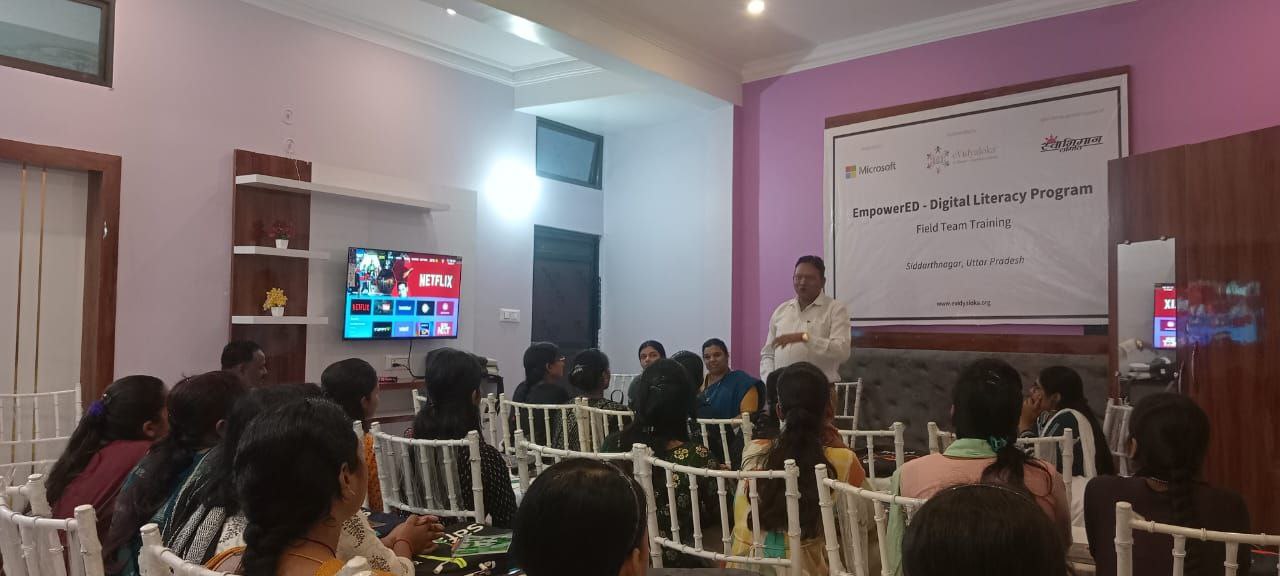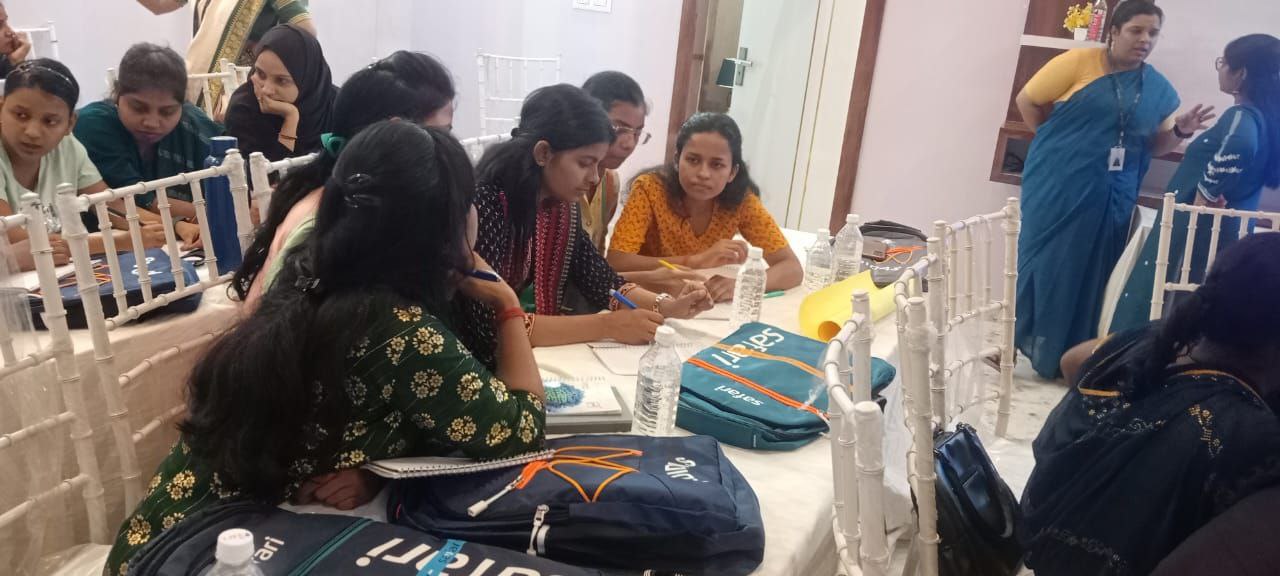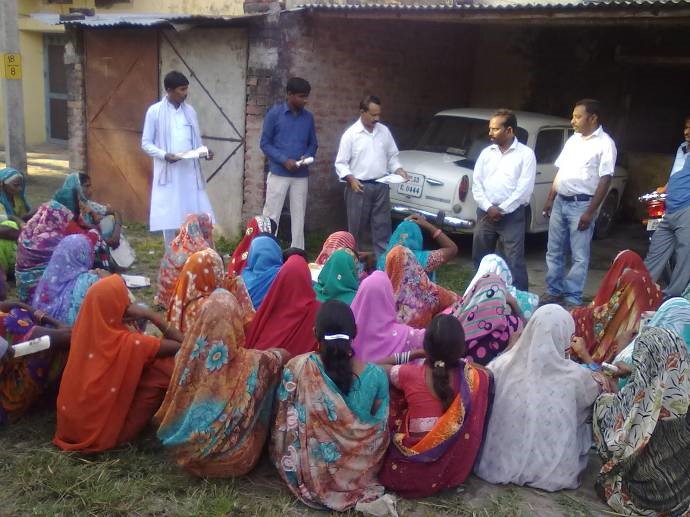Women Empowerment & Local Governance
Women Empowerment & Local Governance
The Women Empowerment & Local Governance program, initiated by Swabhiman Samiti, has had a significant impact on women in the targeted villages, particularly in terms of improving their self-reliance, decision-making abilities, and access to resources. The program aimed to transform women’s roles in their communities, ensuring that they became active participants in local governance and economic decision-making.
- Key Achievements:
The positive changes among women in the targeted villages can be seen through the following developments:
- Increased Self-Dependence: Women in the targeted villages have become more self-reliant and have begun taking ownership of their lives. They no longer depend on others for financial or decision-making support.
- Formation of Self-Help Groups (SHGs): Women in the villages have organized themselves into Self-Help Groups (SHGs), where they meet regularly to discuss their issues and find solutions together. These groups have provided women with a platform to share experiences, raise concerns, and provide support to one another.
- Financial Independence: As part of the SHGs, women contribute monthly savings of Rs. 20 to Rs. 100. These savings accumulate over time, and when they need money, they borrow from the SHG without facing the high interest rates and exploitation they previously experienced. Over the course of the year, the SHGs have accumulated a total savings of Rs. 17,030.
- Access to Loans without Exploitation: Previously, women would borrow money from wealthy farmers at high interest rates, with an interest charge of Rs. 10 per Rs. 100 per month. If they were unable to repay, they would often become bound laborers, working for the farmers to pay off their debts. With the formation of SHGs, this system has been eliminated, and women now have access to affordable loans and financial support without being exploited.
- Community Leadership: Women are increasingly taking leadership roles within their communities. Sumitra Devi, a woman from Hathiwartal village, shared how the SHG has empowered her to lead the group, discuss common problems, and coordinate solutions. She also highlighted the group’s efforts in protesting against alcoholism and violence, demonstrating the growing social activism and awareness among women.



- Interventions at a Glance:
The program focused on the following key areas to empower women and improve their participation in local governance:
- Capacity Building of Women:
- Training programs were conducted to help women understand and access benefits from Panchayati Raj institutions. This helped women take an active role in local governance and community development.
- Employment through National Rural Employment Guarantee Scheme (MGNREGA):
- Women were ensured job opportunities under the National Rural Employment Guarantee Scheme (MGNREGA), providing them with stable income and improved economic independence.
- Legal-Aid and Social Awareness:
- Training was provided on legal rights and social awareness to ensure that women were able to access their rights, particularly in areas such as land rights, property ownership, and protection from violence.
- Women’s Day for Dignity and Identity:
- Women’s Day was celebrated as a platform for raising awareness about women’s rights and promoting the dignity and identity of women. It served as a reminder of the struggles women face and the importance of empowerment.
- Collective Farming for Land Access:
- Collective farming initiatives were introduced to help women access and work on land. This allowed them to engage in agricultural activities, earn a livelihood, and become financially independent.
- Impact of the Program:
The Women Empowerment & Local Governance program has had profound impacts on both the individual and community level:
- Financial Security: The creation of Self-Help Groups and regular savings has provided women with a financial cushion and the ability to make their own decisions without relying on exploitative loans from local farmers.
- Social Change: The program has empowered women to become leaders and change-makers in their communities, addressing social issues such as violence, alcoholism, and gender inequality.
- Improved Access to Rights: Through legal aid and social awareness training, women have been better able to access their legal rights and participate in local governance, ensuring they have a voice in the decisions that affect their lives.
- Sustainability: The focus on collective farming has empowered women to engage in agriculture, enabling them to generate income and contribute to the sustainability of their communities.
- Conclusion:
The Women Empowerment & Local Governance program has successfully transformed the lives of women in the targeted villages by providing them with tools, knowledge, and opportunities for economic and social empowerment. Through Self-Help Groups, training on legal rights, and active participation in local governance, women have been able to break free from exploitation, increase their financial independence, and take on leadership roles in their communities.
Swabhiman Samiti remains committed to the empowerment of women, ensuring they have the necessary support to live with dignity, participate in decision-making, and contribute meaningfully to their communities. This initiative is a powerful example of how collective action, education, and social awareness can bring about lasting change for women in rural areas.






